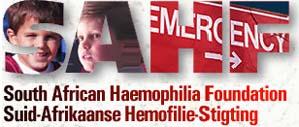Clinical activities | Teaching and training | Resources
Staff
| Consultants: | Professor Alan Davidson | alan.davidson@uct.ac.za |
| Associate Professor Marc Hendricks | marc.hendricks@uct.ac.za | |
| Dr Helder de Quintal | helder.dequintal@uct.ac.za | |
| Dr Anabela Andrade | anabela.andrade@uct.ac.za | |
| Fellows: |
Dr Cindi Gabriels (South Africa) |
|
| Medical Officers: | Dr Wendy Mathiassen | wrwm@iafrica.com |
| Dr Kristan Donson (Research) | kristan.donson@gmail.com | |
| Location: | The National Lotteries Board Oncology Unit (Ward G1) | |
| Contact Numbers: | ONCOLOGY UNIT SECRETARY Mrs Colleen Rex |
021-658-5297 |
|
ONCOLOGY CLINIC BOOKINGS |
021-658-5185 | |
|
INPATIENT ENQUIRIES |
021-658-5284 | |
|
FAX |
021-658-5439 |
Clinical Activities
Paediatric haematology/oncology service
- Red Cross Children's Hospital is the largest Children's Hospital in Sub-Saharan Africa. It provides all levels of multidisciplinary care at an international level whilst taking into account the limitations of being located in a resource poor country.
- The haematology part of the service sees rare and complex diseases (congenital bleeding disorders, complex anaemias, inherited haemolytic anaemias and haematologic conditions associated with systemic diseases).
- The oncology part of the service manages all childhood cancers including brain tumours, Wilms’ and other solid tumours, lymphomas and leukaemias.Approximately 100 newly diagnosed patients are treated annually.
- The vision and mission of the haematology/oncology service is to provide the best possible care for all children with cancer. We follow internationally accepted guidelines and protocols currently in use in the developed world. Handling the additional problems of infection (including HIV and Tuberculosis), malnutrition and late presentation prevalent in underdeveloped countries forms a particular focus of our work.
- The Service is directed towards building and expanding capacity to manage both complex haematologic disorders and malignancy in children, including those from vulnerable populations affected by the neglected diseases of poverty.
- The emergence of HIV related malignancies and their management has resulted in the design of new protocols based on the availability of antiretroviral therapy.
- The service operates in the region of 20 clinics a month, with more than 6000 clinic visits and 1800 admissions a year.
- There are 17 dedicated paediatric haematology/oncology beds and we provide opinions on patients being managed on the “general wards” in this hospital system and by paediatricians and oncologists from further afield.
- An outreach service operates with regional specialist visits for both training and case assessment.
- The service assists with establishing national guidelines for the management of paediatric cancer and haemophilia.
Teaching and training
South African and Regional Training Centre
- We are currently one of five centres in South Africa with a dedicated paediatric oncology training post.
- The post follows international training guidelines.
- To date eight South African trainees have completed training. The ninth will complete her training in November 2025.
- We have trained 12 fellows from 7 countries (Botswana, Ghana, Malawi, Nigeria, Tanzania, Uganda, Zimbabwe) under the auspices of the African Paediatric Fellowship Programme. All are practicing in their country of origin. Seven are unit heads. Three more fellows are in the process of training.
- The team regards training as an essential way to improve care to children with haematologic and malignant conditions.
Oncology Unit timetable
| Day | Time | Description | Venue |
| Monday | 09:00 | Oncology Clinic | |
| 12:00 | Folder meeting to discuss clinic patients | ||
| 14:00 | Grand Round | ||
| 16:00 | RCWMCH Shared Care Meeting | Zoom | |
| Tuesday | 08:00 | Surgical Forum | |
| 09:00 | Oncology Meeting (Tumour Board) | Teams | |
| 10:00 | Haematology Clinic | ||
| 12.30 | Ward Round | ||
| 15:00 | Fellow Teaching | G1 | |
| 16:00 | Afternoon Round | ||
| Wednesday | 08:00 | Department Clinical Meeting | D3 LT |
| 11:00 | Long Time Follow Up Oncology Clinic | ||
| 12:30 | Ward Round | ||
| 14:00 | Academic afternoon for Haem/Onc Fellows. Haem/Onc Tutorial for Rotating Registrars Teaching for Haem/Onc Nursing Staff |
||
| 16:00 | Afternoon Round | ||
| Thursday | 09:00 | Oncology Clinic | |
| 12:00 | Folder meeting to discuss clinic patients | ||
| 12:30 | Ward Round | ||
| 13:00 | Journal Club | ||
| 13:30 | Paediatric Registrar teaching afternoon | ICH | |
| 16:00 | Afternoon Round | ||
| Friday | 08:00 | NeuroOncology Meeting (PB Tumour Board) | Teams |
| 10:00 | Grand Round | ||
| 10:00 | Combined Brain Tumour Clinic (1st Friday of every month) |
LE 33 GSH | |
| 12:00 | Case Presentations | D3 LT | |
| 15:00 | Psychosocial Meeting (1st Friday of every month) |
||
| 16:00 | Afternoon Round |
Childhood cancer information resources
There are many excellent resources providing information on childhood cancer.
If you are a physician who has referred a patient to a Paediatric Oncology Centre, and are involved in counselling the family or continuing care, here are some websites that will provide you with background information on diagnosis, treatment and long-term complications.
There are also many useful sites with information for families of children with cancer.
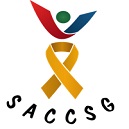
South African Children's Cancer Study Group (South Africa)
South African physicians involved in the treatment of children with cancer.
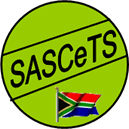
South African Stem Cell Transplantation Society
the newly formed South African Stem Cell Transplantation Society (SA SCeTS ) is a scientific and educational non-profit organization aiming to bring together haematologists, oncologist, physicians, scientists, nurses, technologists and medical administrators with an interest in and/or involved in the teaching, research, practice and promotion of haematopoietic stem cell transplantation.
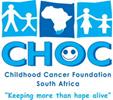
CHOC (South Africa)
CHOC Childhood Cancer Foundation is a national voluntary organisation. It brings together the parents of children who suffer from all varieties of cancer or life threatening blood disorders. Funds raised directly benefit the children and their families, and also those involved in the treatment of these illnesses. The goal of this group is to improve the welfare and quality of care for children with cancer.
The organisation provides practical help to children with cancer, recognising the disruption to family life when a child faces intensive and often lengthy treatment. The name CHOC (an abbreviation of “Children’s Haematology Oncology Clinics”) was used by the first local parent group, established in 1979. In 2000 a new national organisation was formed, linking parent groups in all parts of the country.
http://www.choc.org.za

National Cancer Institute (United States)
Childhood Cancer home page of the National Cancer Institute
http://www.cancer.gov/cancertopics/types/childhoodcancers
Young People with Cancer: A Handbook for Parents
http://www.cancer.gov/cancertopics/youngpeople
Care for Children and Adolescents With Cancer: Questions and Answers
http://www.cancer.gov/cancertopics/factsheet/NCI/children-adolescents

Cure-4-Kids (United States)
St. Jude’s Children’s Research Hospital in Memphis Tennessee has been at the forefront of research into and treatment of paediatric malignancy since the 1960s. St. Jude’s helped to pioneer the treatment of acute lymphoblastic leukaemia, and has a well-established outreach programme.
http://www.cure4kids.org

Children's Cancer and Leukaemia Group (United Kingdom)
The CCLG is a national professional body responsible for the organisation of the treatment and management of children with cancer in the UK. The Group's main remit is the coordination of national and international clinical trials. Other areas of activity include national cancer registration and provision of information for patients and families.
http://www.cclg.org.uk
www.childcancer.org.uk
If you are looking for resources to help families affected by cancer in children and young people then http://www.childcancer.org.uk childcancer.org.uk is a very useful place to start. The resources are aimed not just at parents of young people with cancer but at siblings, grandparents and other family members, indeed anyone with an interest in childhood cancer. The website is an offshoot of the CCLG site.

Cancerbackup (United Kingdom)
Cancerbackup is Europe's leading cancer information charity.
http://www.cancerbackup.org.uk/Home
The children's cancers information centre can be found at …
http://www.cancerbackup.org.uk/Cancertype/Childrenscancers

BC Cancer Agency (Canada)
The BC Cancer Agency, an initiative of the Provincial Health Service of British Columbia, is a website devoted to all aspects of cancer, and provides comprehensive information and resources for heath professionals and survivors.
http://www.bccrc.ca

International Paediatric Oncology Society (SIOP)
SIOP is the major global organisation dedicated to childhood cancer. For the past 35 years it has brought together doctors of many different disciplines in an effort to improve survival. In recent years nurses have become involved, and an alliance has been developed with parents and their complementary organisation ICCPPO.
At the outset 75% of children with cancer died, but now, with the best treatment, 75% can be cured. However, only a minority of sufferers have access to the incredible advances that have been made over the lifetime of SIOP. There are many parts of the world where few, if any, children have access to the best, or even limited treatment. SIOP’s mission is to bring the best possible care for children with cancer to the farthest corners of the globe.
http://www.siop.nl
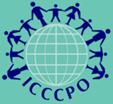
International Confederation Of Childhood Cancer Organisations
ICCCPO was founded in May 1994 in Valencia, Spain. ICCCPO is a worldwide network of organisations of parents of children with cancer. The web site is intended to be a major resource for parent organisations and individuals.
http://www.icccpo.org
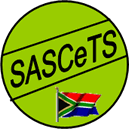
South African Stem Cell Transplantation Society

The World Federation of Hemophilia (WFH)
The World Federation of Hemophilia (WFH) is an international not-for-profit organization dedicated to improving the lives of people with hemophilia and related bleeding disorders.
Since it was established in 1963, the WFH has grown into a truly global network with member organizations in more than 100 countries and official recognition from the World Health Organization.
http://www.wfh.org
Haemophilia Information Resources
There are many excellent resources providing information about haemophilia
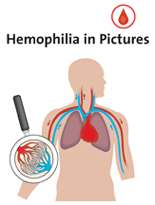

These are among the many resources offered on the WFH website
